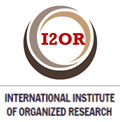Labor psychosocial environmental in post-covid-19 stage
Keywords:
covid-19 pandemic, occupational psychosocial factors, occupational psychosocial risks, job-related stress, mental health,Abstract
Introduction. Covid-19 pandemic threatens health and life and coexists with mental health problems caused by constant tensions. Working environments are vulnerable to viral contagion and its psychosocial problems such as stress and its physiological and emotional correlatives.
Objective. It is intended to show the impact potential of the pandemic on the psychosocial work environment, directly through evaluation of the biological risk and indirectly through the changes provoked in the working conditions and working modalities.
Development. It is proposed an ensemble of recommendation that can be used by the occupational health staff, working population and executives.
Conclusions. Developing actions which contribute to prevent evolution of a morbid process in the psychosocial working environment that affects health and wellbeing of people and their performance at work.
Downloads
References
OIT (2020) Detener la pandemia: la seguridad y la salud en el trabajo salvan vidas. Día Mundial de la Seguridad y la Salud en el Trabajo 28 de abril.
Benavides, FG. (2020). La salud de los trabajadores y la COVID-19 Arch Prev Riesgos Labor. 2020;23(2):154-8. Disponible en: https://doi.org/10.12961/aprl.2020.23.02.02
Seara, M. (2020) ¿Cómo abordar los riesgos psicosociales en la era de la COVID-19? Disponible en:
https://www.humanas.es/como-abordar-los-riesgos-psicosociales-en-la-era-del-covid19/
Kang, L., Ma, S., Chen, M., Yang, J., Wang, Y., Li, R., Yao, L., Bai, H., Cai, Z., Xiang Yang, B., Hu, S., Zhang, K., Wang, G., Ma, C., & Liu, Z. (2020). Impact on mental health and perceptions of psychological care among medical and nursing staff in Wuhan during the 2019 novel coronavirus disease outbreak: A cross-sectional study. Brain, Behavior, and Immunity. Disponible en: https://doi.org/10.1016/j.bbi.2020.03.028
Xiang Y-T, Yang Y, Li W, et al. Timely mental health care for the 2019 novel coronavirus outbreak is urgently needed. Lancet Psychiatry 2020; 7:228-9
Chen Q, Liang M, Li Y, Guo J, Fei D, Wang L & Zhang Z. Mental health care for medical staff in China during the COVID-19 outbreak. Lancet. 2020;7(4):15-6. Disponible en: https://doi.org/10.1016/S2215-0366(20)30078-X.
Wang C, Pan R, Wan X, Tan Y, Xu L, Ho CS & Ho RC. Immediate Psychological Responses and Associated Factors during the Initial Stage of the 2019 Coronavirus Disease (COVID-19) Epidemic among the General Population in China. International Journal of Environmental Research and Public Health. 2020; 17:17-29. Disponible en: https://doi:10.3390/ijerph17051729
Brooks SK, Webster RK, Smith LE, Woodland L, Wessely S, Greenberg N. & Rubin GJ. The psychological impact of quarantine and how to reduce it: rapid review of the evidence. The Lancet 2020;395(10227):912–20. Disponible en: https://doi.org/10.1016/S0140-6736(20)30460-8.
Grupo de Intervención Psicológica en situaciones de Emergencias, Desastres y Catástrofes Colegio Oficial de Psicología de Navarra (2020) Atención psicológica telefónica covid-19. -GIPEC- NAVARRA
Alonso FR. Cubadebate: Garantías laborales y apuntes sobre la transportación en tiempos de COVID-19. Disponible en: http://www.cubadebate.cu/noticias/2020/05/11/garantias-laborales-y-apuntes-sobre-la-transportacion-en-tiempos-de-covid-19-video/
Enfrentamiento a la COVID-19 desde el Trabajo y Seguridad Social. Disponible en: https://www.cubahora.cu/sociedad/enfrentamiento-a-la-covid-19-desde-el-trabajo-y-seguridad-social
Romero YL. La opción del teletrabajo en Cuba debe ser perdurable. Juventud Rebelde. 2019 septiembre
Prado Nd. Cubadebate: El teletrabajo no es moda pasajera, llegó para desarrollarse. Disponible en: http://www.cubadebate.cu/especiales/2020/03/27/el-teletrabajo-no-es-moda-pasajera-llego-para-desarrollarse/#.XrsxvD86vwM.
Ley No. 116/2013 del Código del Trabajo. Gaceta Oficial No.29 Extraordinario. 2014; junio: 453-483.
Gómez, García, A. R.(2020) Retorno al trabajo y la COVID-19 CienciAmérica (2020) Vol. 9 (2)Número Especial Desafíos Humanos ante el COVID-19 Abril – Octubre. 2020 Disponible en: http://dx.doi.org/10.33210/ca.v9i2.277
Sim MR. The COVID-19 pandemic:major risk to healthcare and other worker on the front line. Occup Environ Med. 2020; 77: 281-282. Disponible en: http://doi.org/10,1136/oemed-2020-106567.
Schwartz J, King C-C, Yen M-Y. Protecting health care workers during the COVID-19 coronavirus outbreak –Lessons from Taiwan’s SARS response. Clinic Infect Dis 2020;pii:ciaa255
Hamouche S. Research Article COVID-19 and employees’ mental health: stressors, moderators and agenda for organizational actions [version 1; peer review: awaiting peer review] Emerald Open Research 2020. Disponible en: https://doi.org/10.35241/emeraldopenres.13550.1.
Gonzalez-Mulé, E., & Cockburn, B. S. (2020). This job is (literally) killing me: A moderated-mediated model linking work characteristics to mortality. Journal of Applied Psychology. Disponible en: https://doi:10.1037/apl0000501
Phiri. A, Bano. N, Raouf. A (2019) Interpersonal skills and emotion management: Impact of social leadership on job satisfaction of workers. Adv Dev Educ Psychol, 1(1): 1−6. https://doi:10.25082/ADEP.2019.01.001
Wu P, Fang Y,Guan Z, et al. The psychological impact of the SARS epidemic on hospital employees in China: exposure, risk perception, and altruistic acceptance of risk. Can J Psychiatry 2009; 54:302-11.
Torales J, O’Higgins M, Castaldelli-Maia JM, & Ventriglio A. The outbreak of COVID-19 coronavirus and its impact on global mental health. International Journal of Social Psychiatry, 2020; 31. Disponible en: https://doi:10.1177/0020764020915212.
Downloads
Published
How to Cite
Issue
Section
License
Aquellos autores/as que tengan publicaciones con esta revista, aceptan los términos siguientes:- Los autores/as conservarán sus derechos de autor y garantizarán a la revista el derecho de primera publicación de su obra, el cuál estará simultáneamente sujeto a la licencia Creative Commons Reconocimiento-NoComercial-CompartirIgual 4.0 Internacional (CC BY-NC-SA 4.0) Esta licencia permite a otros compartir el trabajo con un reconocimiento de la autoría del trabajo y la publicación inicial en esta revista (componente BY o atribución). Coincidente con la política de Acceso Abierto, no se podrán hacer usos comerciales de los contenidos publicados por esta revista (componente NC). Se permitirán las obras derivadas (remezcla, transformación o creación a partir de la obra original), siempre y cuando sean distribuidas bajo la misma licencia de la obra original (componente SA).
- Los autores/as podrán adoptar otros acuerdos de licencia no exclusiva de distribución de la versión de la obra publicada (p. ej.: depositarla en un archivo telemático institucional o publicarla en un volumen monográfico) siempre que se indique la publicación inicial en esta revista.
- Se permite y recomienda a los autores/as difundir su obra a través de Internet (p. ej.: en archivos telemáticos institucionales o en su página web) antes y durante el proceso de envío, lo cual puede producir intercambios interesantes y aumentar las citas de la obra publicada. (Véase El efecto del acceso abierto).






